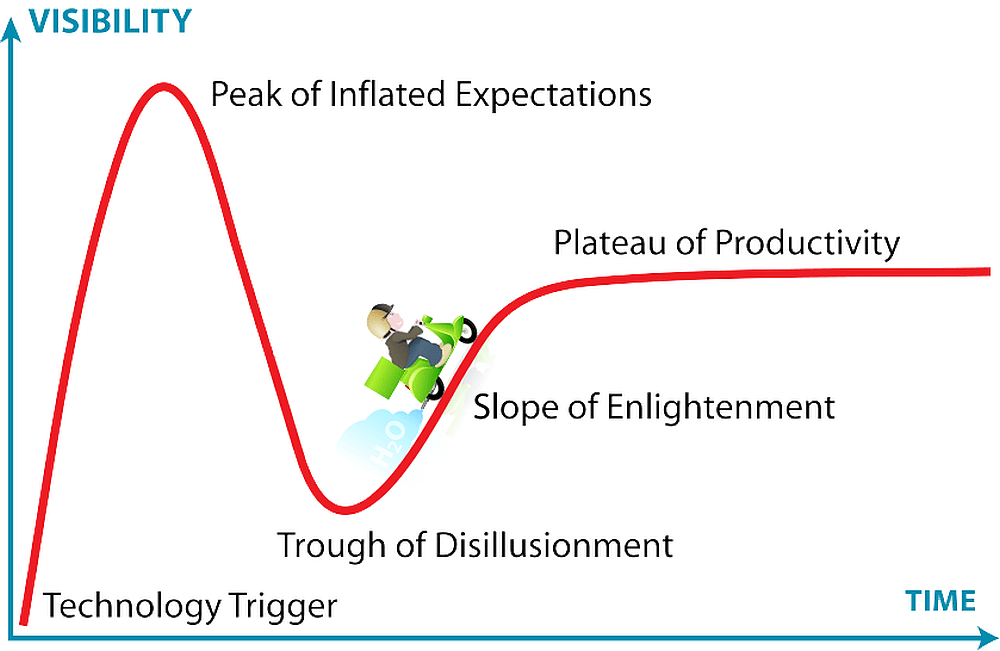I
[Image above] Graduate students talk. NSF wants to listen. Were these students at the recent ICACC student mixer discussing ways to improve their career preparation, or were they just making dinner plans? If the former, they should know about the NSF contest, which includes cash prizes—enough to buy a lot of dinners. Credit: ACerS.
Much ink and many pixels address the issue of attracting more students to careers in science, technology, engineering, and math-the so-called STEM careers. The focus tends to be on elementary and high school students, namely, keeping them interested in math and science and preventing discouragement, especially among girls and other underrepresented groups, such as minority students. At the college level, the focus is on attracting, retaining, and graduating students in STEM majors.
There seems to be an unspoken assumption that all is well for graduate students in STEM fields.
The National Science Foundation is testing this hypothesis with its “2013 Innovation in Graduate Education Challenge.” Are STEM graduate students adequately prepared for the challenges they will step into as they navigate their careers? What is missing? What needs to be modified or added? Now is your chance to get your ideas and thoughts out of the graduate student lounge and into the minds of people who might be able to act on them!
The NSF is serious about collecting your ideas: Contest winners will be awarded prizes of $1,000-3,000.
By the way, our own President’s Council of Student Advisors has a similar project underway focusing on how well undergraduate and graduate student feel their institutions are preparing them for careers. Their finding will be presented at MS&T 2013.
From the NSF website:
2013 Innovation in Graduate Education Challenge
Our world is changing faster than ever before—technology is developing at an unprecedented rate and the world faces extraordinary challenges with solutions based in science, technology, engineering, and mathematics. What is needed to prepare STEM graduate students to meet these modern day challenges? Fundamental changes are also occurring in the career options for STEM professionals. What is necessary to navigate the career pathways of the future?
The Division of Graduate Education at the National Science Foundation challenges STEM graduate students across the nation to submit innovative ideas to prepare them for tomorrow’s opportunities and challenges. Entries are solicited for ideas with the potential to improve graduate education and professional development. Ideas can be directed toward, for example, students, faculty, departments, institutions, professional societies, and/or federal agencies. Make your voice heard on STEM graduate education!
Be sure to include the following elements in your submission:
1. The title of your submission (150 characters or less)
2. The issue in graduate education you wish to address
3. Your solution or idea
4. How your idea will change graduate education
Who: Currently enrolled STEM graduate students (see additional eligibility criteria)
What: A 1,000-1,500 word submission responding to this challenge
Where: Submission made to https://production.skild.com/skild2/NSF-EdChallenge/loginPage.action
When: Entries must be submitted by 11:59PM Pacific Time on April 15, 2013
For more information contact the NSF at gradchallenge@nsf.gov or check out the FAQ section.
Author
Eileen De Guire
CTT Categories
- Basic Science
- Education
- Market Insights
Related Posts
Hype cycles: The uphill climb for hydrogen bikes
June 26, 2025


